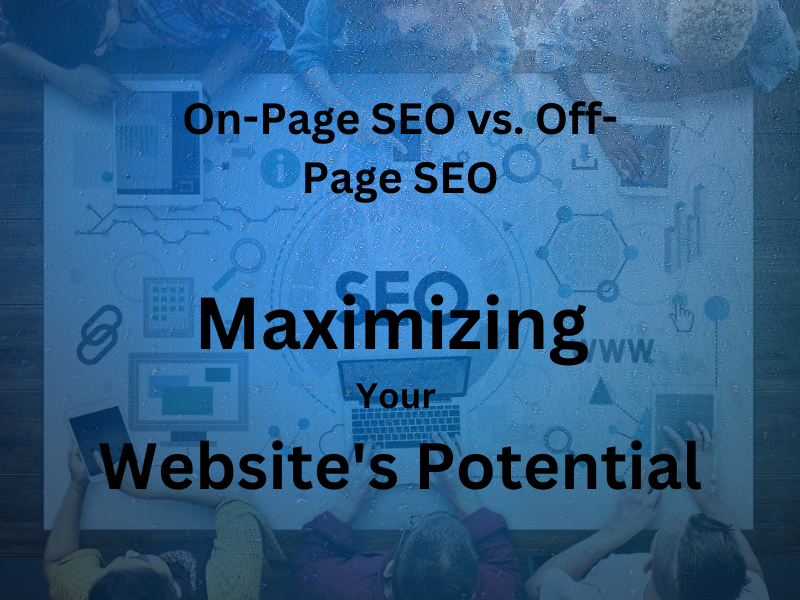When it comes to search engine optimization (SEO), there are two distinct categories of strategies: on-page SEO and off-page SEO. Understanding the difference between these two approaches is essential for maximizing your website’s potential and improving its search engine rankings.
On-Page SEO refers to the optimization techniques that you can implement directly on your website. It involves optimizing various elements within your web pages to make them more search engine-friendly and user-friendly. Key components of on-page SEO include:
- Content Optimization: Creating high-quality, relevant, and engaging content that incorporates targeted keywords strategically. This includes optimizing page titles, headings, meta descriptions, and image alt tags to align with your target keywords.
- Keyword Research: Conducting thorough research to identify the most relevant and valuable keywords for your website. By understanding the search intent of your target audience, you can optimize your content to match their queries effectively.
- URL Structure: Ensuring that your website’s URLs are clean, concise, and contain relevant keywords. A well-structured URL helps search engines understand the content of your page and improves the user experience.
- Site Speed and Mobile Optimization: Optimizing your website’s loading speed and ensuring that it is mobile-friendly. These factors significantly impact user experience and search engine rankings.
- Internal Linking: Establishing a strong internal linking structure to guide both users and search engines through your website. Internal links help search engines understand the hierarchy and relationship between different pages on your site.

On the other hand, Off-Page SEO refers to strategies implemented outside of your website that aim to improve its visibility, reputation, and authority across the web. Off-page SEO primarily focuses on building high-quality backlinks from reputable websites and earning online mentions and references. Key components of off-page SEO include:
- Link Building: Acquiring backlinks from authoritative and relevant websites. Quality backlinks signal to search engines that your website is trustworthy and valuable, improving your search engine rankings.
- Social Media Engagement: Engaging with your audience on social media platforms and sharing your content. Social signals, such as likes, shares, and comments, can indirectly influence search engine rankings.
- Online Reputation Management: Monitoring and managing your online reputation through customer reviews, testimonials, and brand mentions. Positive online sentiment enhances your credibility and visibility in search engine results.
- Influencer Outreach: Collaborating with influencers and industry leaders to promote your brand and content. This can expand your reach, attract new audiences, and generate valuable backlinks.
- Guest Blogging: Writing informative and valuable articles for other websites in your industry. Guest blogging allows you to showcase your expertise, gain exposure, and earn backlinks.
Both on-page SEO and off-page SEO are crucial for a comprehensive and effective SEO strategy. While on-page SEO focuses on optimizing your website’s internal elements, off-page SEO aims to improve its authority and reputation across the web. By implementing a well-rounded approach that combines both strategies, you can maximize your website’s potential, increase its visibility, and attract targeted organic traffic.
Remember, SEO is an ongoing process that requires continuous effort and adaptation. Regularly monitoring your website’s performance, analyzing data, and making necessary adjustments will help you stay ahead of the competition and maintain a strong online presence.



